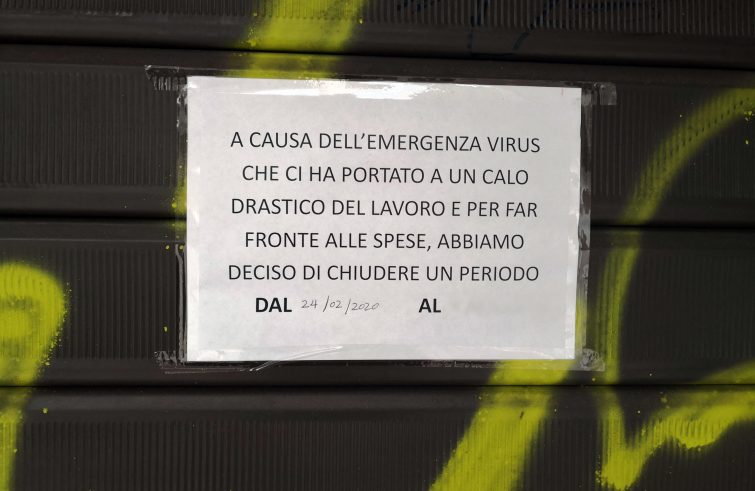
A 4.7% decline during the first quarter, followed by further contraction in April. GDP is set to fall by 9.5% in 2020 in Italy, with a 7.7% drop in the euro zone projected by EU Commission economic experts. A significant rebound is expected in 2021 when, however, only five countries will return to pre-pandemic levels. First of all, Germany, Austria, Croatia, Slovakia and Poland. While Italy, Spain and Greece are bound to struggle further, confirming that the virus has affected everyone. It has been “symmetrical”, as scientists say, but with “asymmetrical” impacts on the economy. Some will suffer more losses than others. We will have to reckon with declining employment, decreasing exports and deficits.
The economic virus struck at vulnerable areas. The resilience of nations situated near Germany should not mislead us. Major economies (such as France, Belgium and others) are set to be slowed down until the end of next year. Not even the most pessimistic among us could have imagined such a catastrophic 2020, fatal for people and devastating for economies. Realistically, the furlough scheme is likely to be extended as well as subsidies for workers who are somehow protected. Loans at zero or almost zero interest have the same assistance purpose for businesses. The faster the recovery ( symbolised by a “V” as opposed to a slower “U”) the better the shock will be cushioned. Aid cannot last forever.
This cannot be the norm for the Italian economy, for it would amount to a food & board scenario. In the most favourable case. If there are no investments, future will be lost, without money, casual labour – that nonetheless ensured minimum earnings – will disappear. Increasing numbers are being pushed into poverty – as local councils, relief agencies, and lay and religious assistance and support groups are well aware of.
Keeping hope alive and offering work, even temporary and perhaps shared with others, involves safeguarding dignity and professionalism. This is something more than financial income. Combining work with training can be attractive for businesses and their employees.
Italians’ personal savings amount to 3,300 billion Euros in net financial wealth and, albeit poorly distributed among the very rich and the very poor, it’s a source of support. Sovereign debt crisis, now interpreted only in terms of spread (differences between ten-year government bonds, particularly between Italy and Germany), don’t appear to be on the horizon despite the fact that Germany’s Constitutional Court in Karlsruhe has cast doubt on the ECB’s (European Central Bank) decisions.
Economists, not least in the Italian government, are discussing two options: to channel the large flow of money provided by the central banks to compensate for the loss of earnings caused by the virus, i.e., “cash windfall”; or to map out a future economy in the recovery process. Some signs were already visible: the EU Green Deal, reducing the distance between food production and consumption in agriculture, stepping up access to digital technologies and providing dedicated training so as to prevent social inequalities. Less hectic tourism where residents and visitors have time to meet. Re-launching all economic activities, but not “for everything to return to the way it was before.”
The ongoing crisis will necessitate a stronger role of the State and of regional public structures. While there is concern that politics may become more intrusive and inefficient, public (i.e. everyone’s) money will be poured in and some oversight will be needed. This is currently being discussed, in view of the upcoming May Decree Law. It envisages earmarking €55 billion, more funds will be provided by Europe and supranational bodies. It is hoped that the emergency liquidity will be integrated by specific planning.












